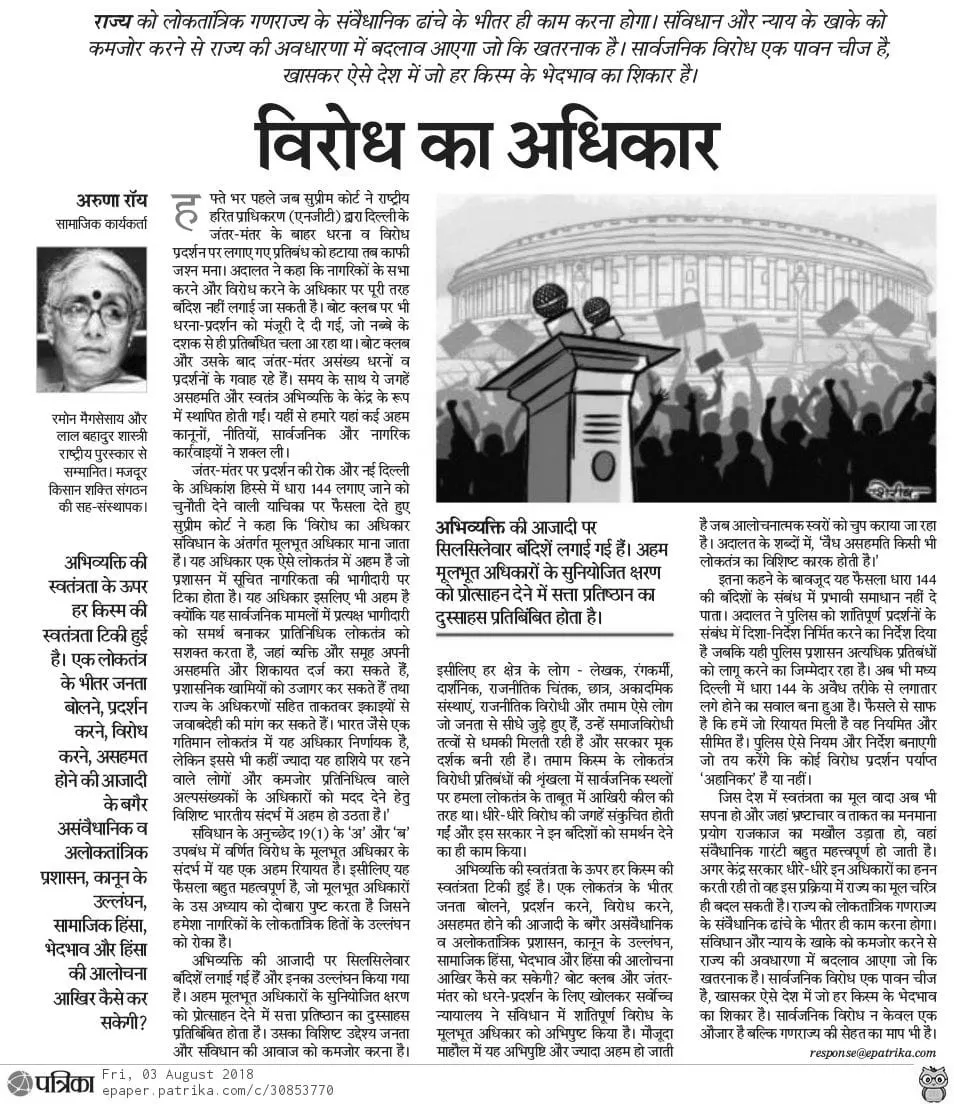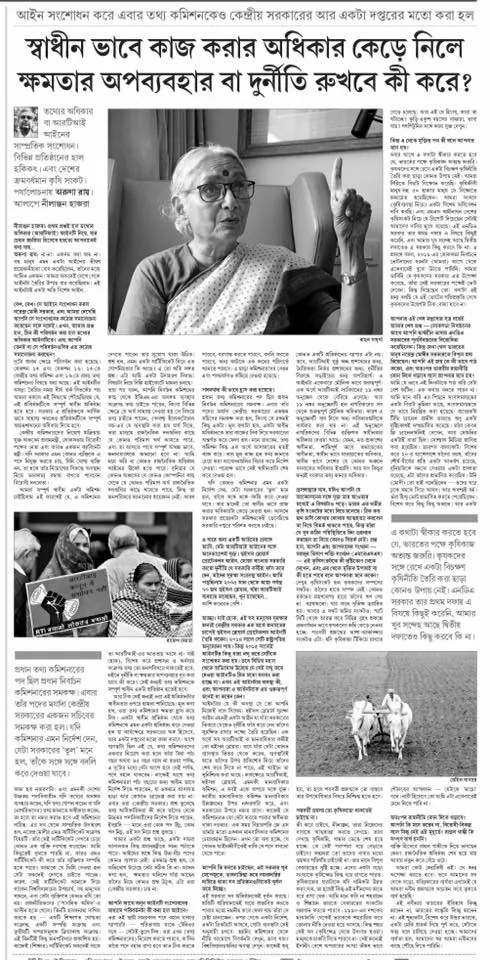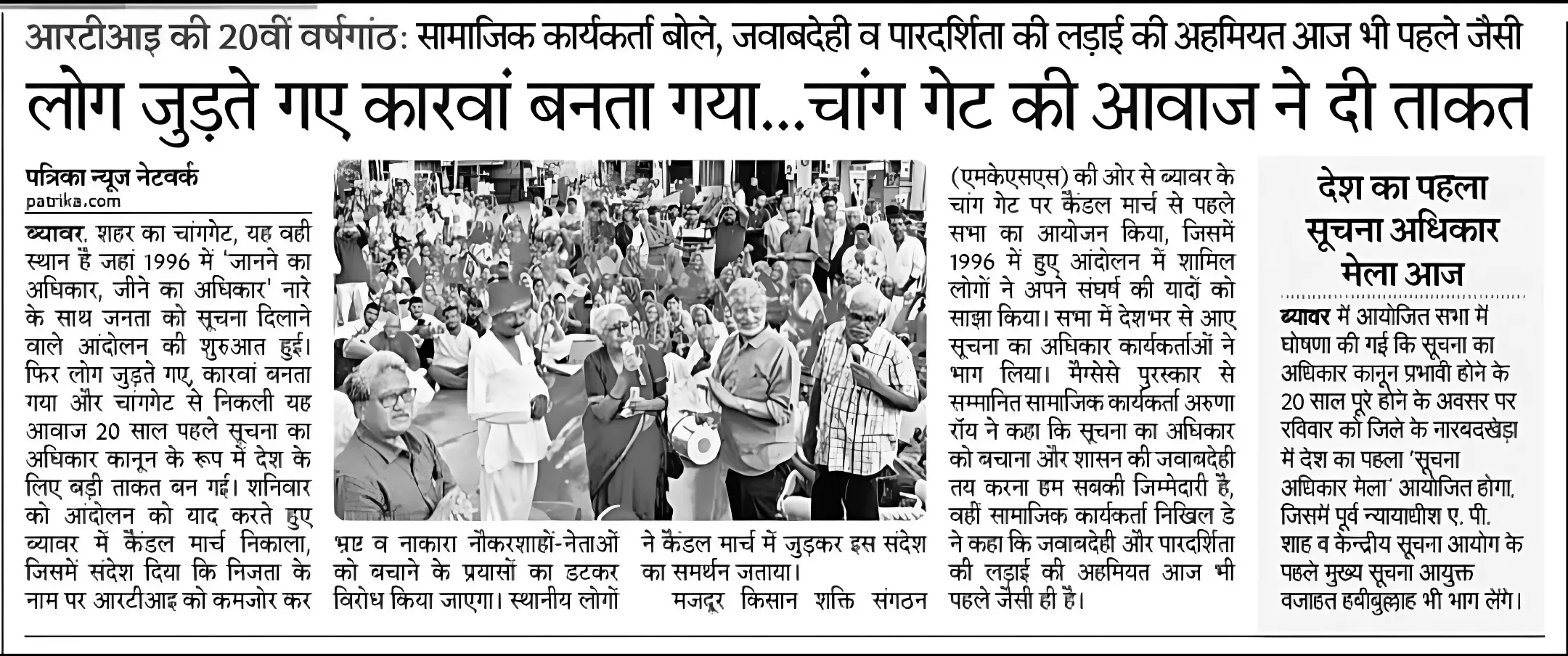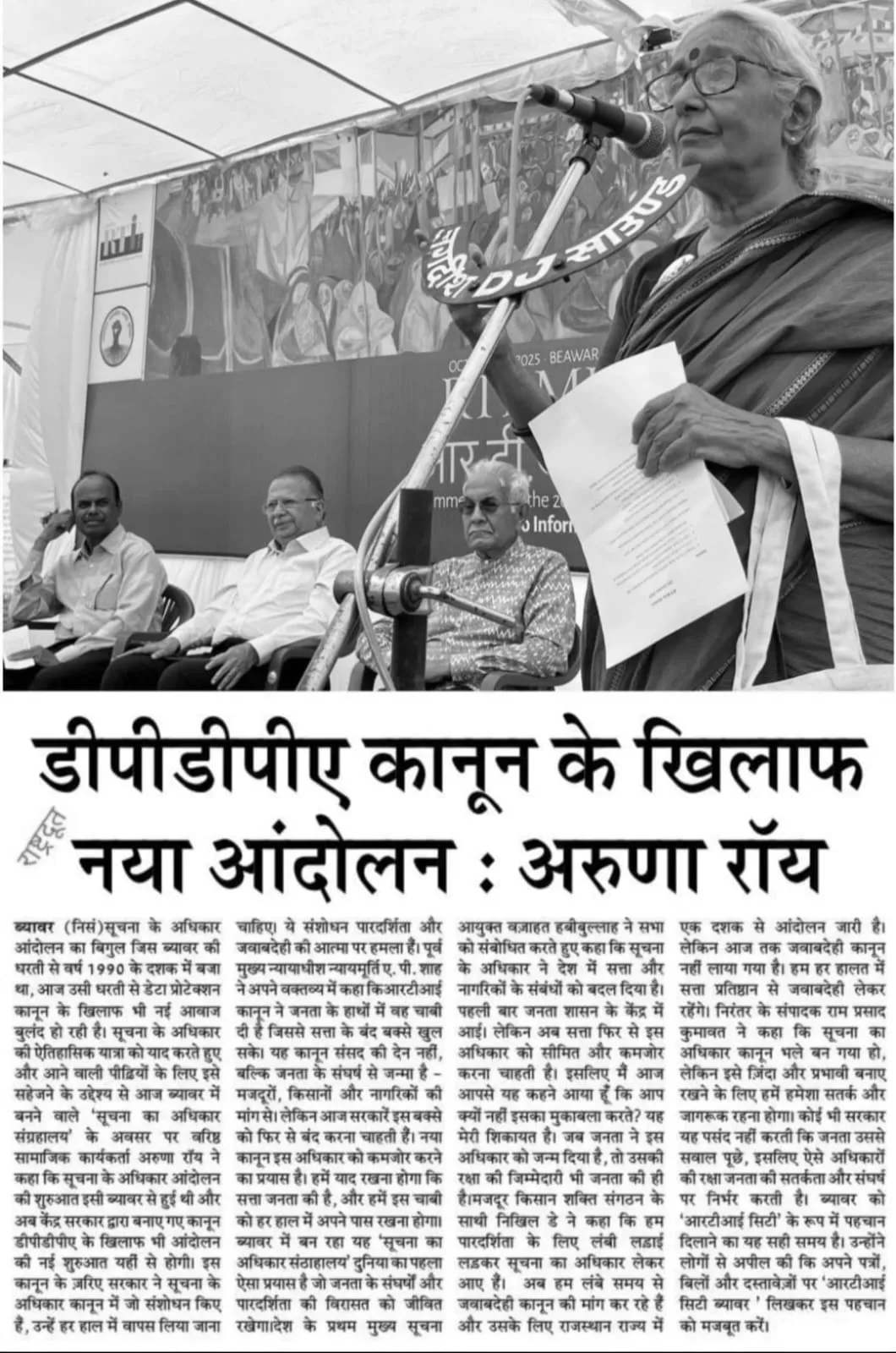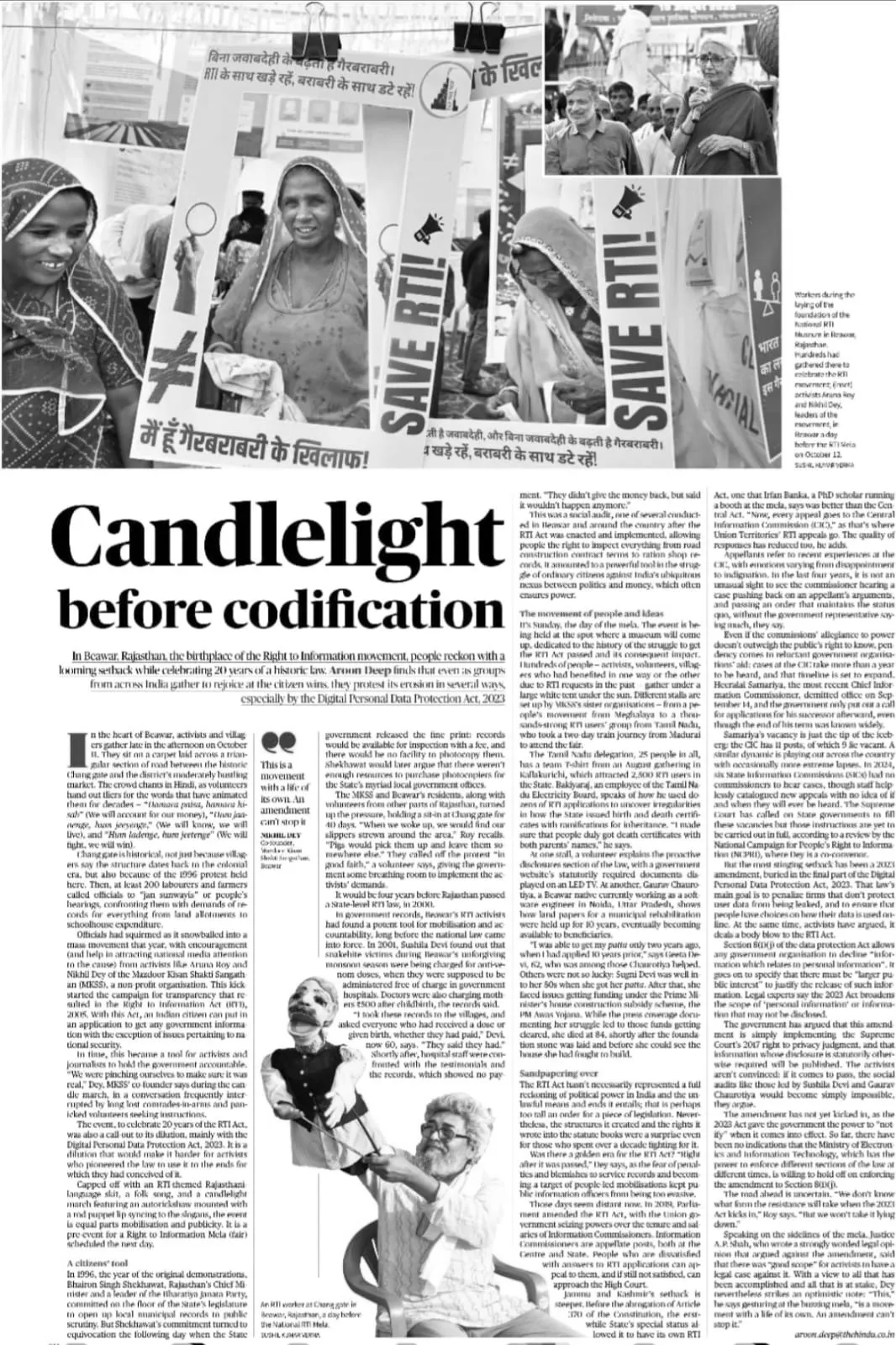
Separate rights from freebies
This editorial argues that India’s welfare must be rooted in rights, not charity. Drawing from the Right to Information movement and MKSS’s village-level audits, it explains how public entitlement laws like MGNREGA reshaped the relationship between the citizen and the state. Instead of discretionary doles, the piece advocates legal guarantees that citizens can claim and verify. It calls for a Minimum Income Guarantee and a strong accountability framework where budgets, outcomes, and delivery systems are transparently monitored. The argument is simple: rights create dignified access and a social contract; freebies depend on politics, weaken institutions, and fade with time.





